Washington’s systematic destruction of Iraq is the root cause of the current crisis, not sectarianism.
Barely a month after US President Barack Obama hailed Iraq’s election as heralding a “peaceful, unified and prosperous future,” the country again verges on civil war. As the Islamic State of Iraq and Syria (ISIS) sweeps toward Baghdad, calls for military action gather momentum. In one commentator’s words: “We have a responsibility to those whose democracy we created.” The patronizing arrogance of this statement is surpassed only by its utter detachment from reality.
Iraq’s “democracy” is ranked 113th out of 167 countries; its government is the third most dysfunctional and seventh most corrupt of any in the world. Incapable of providing its citizens with water, food and electricity, authorities in Iraq routinely rape, torture and murder prisoners — with the United States’ full knowledge and frequent participation. The “democracy we created” is a fantasy. Our true “responsibility” now is two-fold.
First, unless and until we, as citizens of Western states, acknowledge and denounce the complicity of our governments in the butchery and plundering of Iraq, the self-perpetuating cycle of domestic bloodshed and foreign militarism will continue unabated and unabashed. This in no way exonerates Saddam Hussein, Iraq’s current elite or other local and regional forces. All are culpable. Yet such actors, whether clients or opponents of Western power, all operate in structural conditions produced primarily by that power. Failure to grasp this is to fundamentally misunderstand the object of analysis.
Second, we must offer our full and unconditional support to those Iraqis still struggling against domestic and foreign oppression for a different kind of politics. Only Iraqis can generate progress for their country. The greatest contribution we can make to their cause is to amplify their voices.
Contextualizing the Current Crisis
ISIS is nothing to do with any “long-simmering war between the Shi‘ite and Sunni strains of Islam.” However dogmatically repeated, such claims remain historically illiterate and empirically unsustainable. This crisis is political, not sectarian — although it has of course become structured along such fault-lines. It is, moreover, indissociable from decades of Western interventionism, beginning with British colonialism. However, the US response to Saddam’s 1990 invasion of Kuwait is of more direct relevance.
Far exceeding “containment” of their erstwhile ally, US policy severely degraded the Iraqi state’s capacity for civil governance, caused death and suffering on a mass scale, and tied religious and ethnic identities to material survival. The structural conditions not only for Iraq’s 2006-08 civil war, but for the current crisis, were thereby created.
The US-led coalition knew little and cared even less about Iraq prior to the invasion. Those then entrusted to run the country were incompetent and corrupt in equal measure. Paul Bremer, head of the Coalition Provisional Authority (CPA), spoke no Arabic and had no Middle East experience.
A massive bombing campaign was launched. Targeting civilian infrastructure, this has now continued virtually uninterrupted for 23 years. The 2,000 tons of depleted uranium dropped on Iraq caused vastly increased cancer rates, child mortality and birth defects. An extraordinarily harsh sanctions regime further reduced Iraq from a state with a reasonably high standard of living and advanced modern infrastructure to a nation barely clinging onto survival. Life expectancy plummeted from 65 to 58 between 1987-95, as Iraq fell from 54th to 127th on the United Nation’s development index. Sanctions directly caused at least 1 million deaths, including 500,000 children. For survivors, near-starvation diets, countless diseases and severe psychological trauma became the norm.
Professor Marc Bossuyt, an authority on international legislation, describes the sanctions as “unequivocally illegal under existing human rights law.” Dennis Halliday, the former assistant secretary-general of the United Nations, calls them “genocide, … a deliberate policy to destroy the people of Iraq.”As formal institutions weakened, a “shadow state” of personal connections developed. Familial, tribal and religious networks became the primary source of food, medicine and income. These later developed into the sectarian militias that drove the 2006-08 civil war, creating today’s fractured landscape.
That such affiliations gained importance at the expense of a unified national identity was, therefore, a direct outcome of the political economy produced by sanctions and deepened after the 2003 invasion. ISIS is but the latest tragedy to emerge from this context.
2003: The Destruction of Iraq, Continued
Literature on civil war commonly cites weak states, state collapse, poor leadership and unequal access to resources as major causes of conflict. Such factors, introduced or deepened under sanctions, were greatly exacerbated under the US-led occupation. Indeed, having already spent the previous 12 years eradicating any possible social or institution foundation for its hubristic vision of “democracy,” the US and its allies now destroyed all remaining vestiges of a functioning state or cohesive society.
In terms of leadership, the US-led coalition knew little and cared even less about Iraq prior to the invasion. Those then entrusted to run the country were incompetent and corrupt in equal measure. Paul Bremer, head of the Coalition Provisional Authority (CPA), spoke no Arabic and had no Middle East experience. A 24-year-old, fresh from university, managed Iraq’s stock market. America’s major Iraqi partner, Ahmed Chalabi, was a convicted embezzler, known conman and sectarian ideologue — reportedly a candidate for prime minister. Such figures oversaw “the largest war profiteering in history,” as $23 billion of “reconstruction” money was pocketed by multinational corporations and local kleptocrats, smugglers and militias — increasing such actors’ power vis-a-vis the formal state.
Meanwhile, with occupying forces numerically incapable of maintaining order, central authority and civil governance utterly collapsed. The disastrous “de-Ba’athification” program, furthermore, fired hundreds of thousands of teachers, doctors, bureaucrats, police officers and soldiers overnight. This not only deprived the new state of anyone of possible use, skill or experience but — in disproportionately affecting Sunnis — set the stage for Iraq’s civil war. With former army officers and soldiers joining the current uprising, the link between these conflicts and the legacy of 2003 is undeniable.
The sectarianization of Iraq was further compounded by the new constitution. With American and Iraqi elites jointly responsible, this embedded communal divisions into the legislative and institutional architecture of the state. The present insurgency directly contends this legacy of Sunni exclusion. To claim that the litany of errors and abuses — both before and after 2003 — has no connection with current events, as Tony Blair has done, is either disingenuous or deluded.
On the contrary, the US-led destruction of Iraq has been sustained, systematic and methodical. Indeed, so comprehensive was the incompetence of the occupation that 2003 arguably represents the purposeful continuation of the genocide perpetrated under sanctions. Should this language make us uncomfortable, realpolitik suggests similar conclusions. A permanently pliant and unstable entity requiring the constant application of Western power would be entirely consistent with nearly a century of imperial policy. The current crisis emerges from, and threatens to perpetuate, precisely this legacy.
Rethinking ISIS
While the authoritarian and sectarian policies of the incumbent prime minister, Nouri al-Maliki, are undoubtedly the most proximate causes, attempting to abstract the present conflict from the legacy of 2003 is, as demonstrated, utterly fallacious. The uprising has taken root in the same cities and provinces and is composed of the same social factions as the civil war. It has also been radicalized by extreme regional Islamist groups — forces that had no presence in Iraq before 2003.
To claim that the litany of errors and abuses — both before and after 2003 — has no connection with current events, as Tony Blair has done, is either disingenuous or deluded.
However, ISIS — brutal as it is — is only one faction within a broader coalition, which to a large degree represents a legitimate uprising against the violent, oligarchic and exclusionary state built by the US and inherited by Maliki and his cronies. This internal diversity explains why many are returning to cities “liberated” from state control and infighting between factions. Local tribes supply most of the fighters. Many, until a few weeks ago, were peaceful protesters with an anti-sectarian and democratic agenda. They were arrested, tortured and murdered by the state, and have been forced into taking up common arms with ISIS only through such brutality.
This state violence represents the continuation of policies under the US-led occupation. Indiscriminately labeled “Ba’athists,” Sunni political opponents were systematically targeted by death squads, who were trained by the US for the Iraqi government or run by private firms such as Blackwater Worldwide. Such criminalization of dissent — of which the monolithic label of “ISIS” is a part — is intended to force opponents into the violent and sectarian logic imposed upon Iraq by its own elites and imperial power. These actors seek to produce a particular kind of threat, against which the application of military power can be legitimized.
With the medicine the same as the disease, a self-perpetuating cycle of violence easily escapes the control of its original architects — requiring yet more force. Despite Obama’s words about political reconciliation, further US military action would simply continue and escalate this cycle. There is no reason whatsoever to believe that, against all precedent, it would bring Iraq anything other than more destruction.
Breaking the Cycle
For any signs of hope, we must look to ordinary Iraqis’ long history — often forgotten and violently suppressed — of struggling for human dignity, basic rights and representative state institutions. This struggle, always waged against both domestic and foreign oppressors, began in 1920. A nationwide, cross-sectarian and popular uprising against colonial rule was shot, bombed and gassed by British authorities. The Iraqi Communist Party, similarly, long provided a locus of secular opposition. Its members were slaughtered by Saddam, using a list of names provided by the Central Intelligence Agency (CIA).
Following 2003, CPA Order No. 39 turned Iraq into a neoliberal playground. Yet criminalized unions still struggled for the rights of Iraqi workers. Their activists continue to risk their lives for this cause.
As the Middle East rose up in 2011, demonstrators across Iraq called for an end to sectarianism, corruption and state assassinations, a withdrawal of American troops, and jobs, security and essential amenities. They were answered only with violence and ignored by Western media. The current uprising emerges from this decades-long criminalization and persecution of legitimate dissent. Yet many Iraqis continue to resist this logic.
Groups such as the Iraqi Civil Society Solidarity Initiative coordinate grassroots organizations across the country, which attempt to hold the state to account through independent institutions, run candidates in provincial elections and demand human, labor and political rights for all Iraq’s citizens. Today, they call for the immediate supply of food, water and housing to those displaced, declaring unambiguously that: “Any international or US military intervention will only increase and reinforce the negative effects Iraq has suffered over the past decade.”
That there are Iraqis still prepared to risk their lives for their own rights and the rights of others shows that, despite everything, this other history still lives, and may yet contain the seeds of an alternative future. If this sounds naive, it is far more so to look toward either Iraq’s current kleptocracy or Western states for liberation. Both have repeatedly demonstrated that their only interest is in Iraq’s wealth, not its well-being. Progress in Iraq will come from below, from popular struggle, or not at all. It is to this struggle and no other that we should lend our voices and our will.
The views expressed in this article are the author’s own and do not necessarily reflect Fair Observer’s editorial policy.
Support Fair Observer
We rely on your support for our independence, diversity and quality.
For more than 10 years, Fair Observer has been free, fair and independent. No billionaire owns us, no advertisers control us. We are a reader-supported nonprofit. Unlike many other publications, we keep our content free for readers regardless of where they live or whether they can afford to pay. We have no paywalls and no ads.
In the post-truth era of fake news, echo chambers and filter bubbles, we publish a plurality of perspectives from around the world. Anyone can publish with us, but everyone goes through a rigorous editorial process. So, you get fact-checked, well-reasoned content instead of noise.
We publish 2,500+ voices from 90+ countries. We also conduct education and training programs
on subjects ranging from digital media and journalism to writing and critical thinking. This
doesn’t come cheap. Servers, editors, trainers and web developers cost
money.
Please consider supporting us on a regular basis as a recurring donor or a
sustaining member.
Will you support FO’s journalism?
We rely on your support for our independence, diversity and quality.




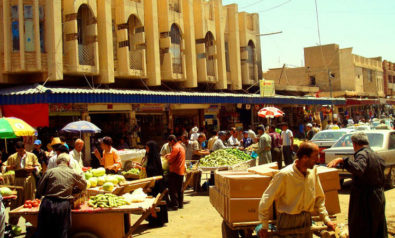
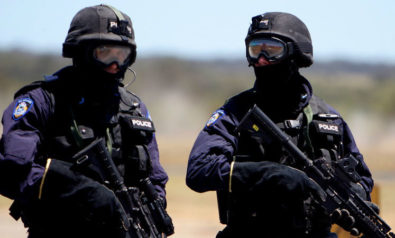

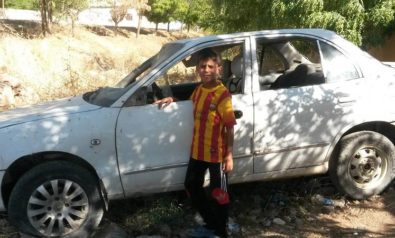
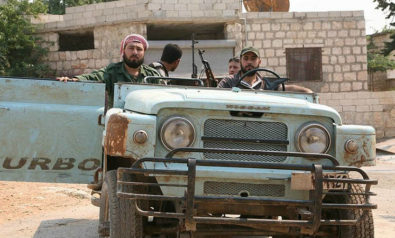
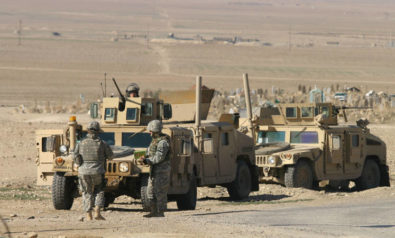
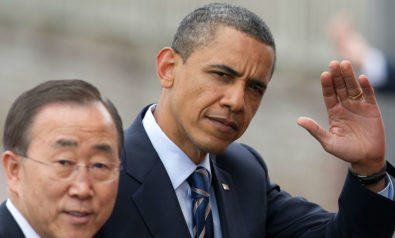

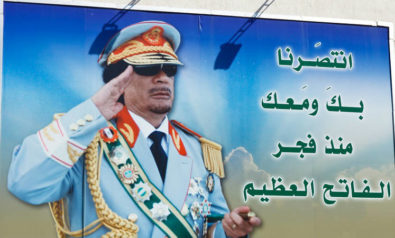


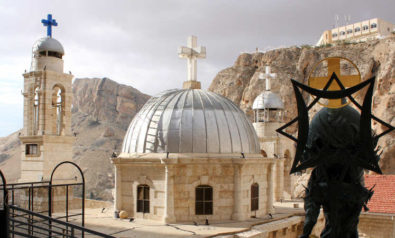


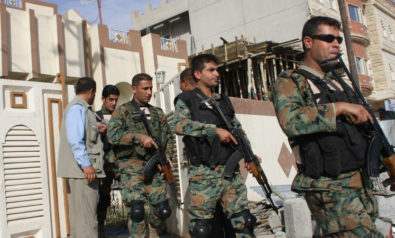
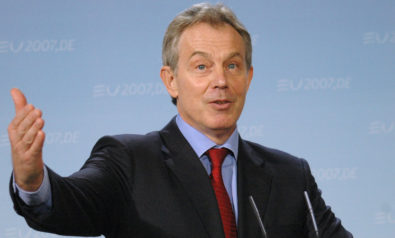
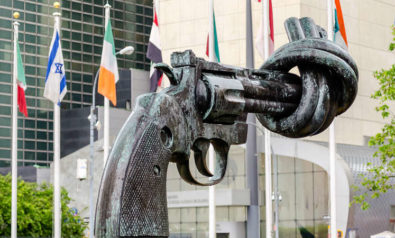

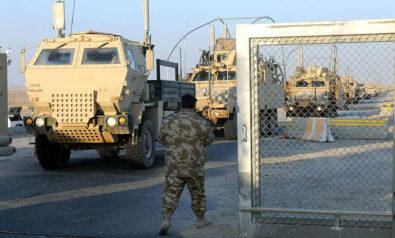




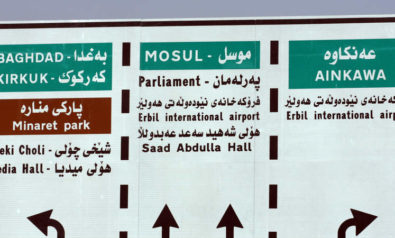
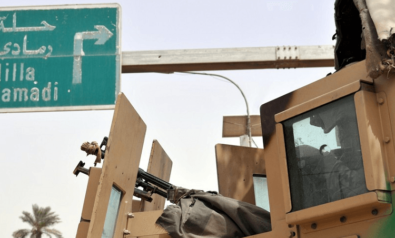


Comment
Thank you! Great report with very interesting facts!
Although sectarian strife in the region has existed for hundreds of years, the fundamental central problems in the Middle East can be traced back to the aftermath of the First World War.
The Sykes–Picot Agreement, officially known as the Asia Minor Agreement, was a secret agreement between the governments of the United Kingdom and France, with the assent of Russia; defining their proposed spheres of influence and control in the Middle East should the Triple Entente succeed in defeating the Ottoman Empire during World War I. The negotiation of the treaty occurred between November 1915 and March 1916. The agreement was concluded on 16 May 1916.
The agreement effectively divided the Arab provinces of the Ottoman Empire outside the Arabian peninsula into areas of future British and French imperial control or influence. The terms were negotiated by the French diplomat François Georges-Picot and British Sir Mark Sykes. The Russian Tsarist government was a minor party to the Sykes–Picot agreement, and when, following the Russian Revolution of October 1917, the Bolsheviks exposed the secret agreement, ‘the British were embarrassed, the Arabs dismayed and the Turks delighted.’
The agreement is seen by many as a turning point in Western–Arab relations. It did negate the promises made to Arabs through Colonel T. E. Lawrence (‘Lawrence of Arabia’) for a national Arab homeland in the area of Greater Syria, in exchange for their siding with British forces against the Ottoman Empire. Almost 100 years later (2014), the jihadist organization ISIL uses Sykes-Picot as their rallying cry and have conquered Mosul and parts of northern Syria to form an Arab Caliphate along sectarian lines rather than definitions of European diplomats.
The agreement’s principal terms were reaffirmed by the inter-Allied San Remo Conference of 19–26 April 1920 and the ratification of the resulting League of Nations mandates by the Council of the League of Nations on 24 July 1922.
The creation of the artificial entity “Iraq” by Gertrude Bell and Winston Churchill after World War I, with the destruction of the Ottoman Empire, served the imperial interests of the British.
After years of deadly sanctions and bombing following the 1991 Gulf War, in 1998 President Bill Clinton signed the Iraq Liberation Act. This was a precursor to the 2003 invasion of Iraq.
The war criminals in the Bush and Blair administrations lied about the pretexts and reasons for their preemptive, illegal and unconstitutional invasion of Iraq, aided by the disinformation and propaganda by regime stenographers in the establishment mainstream media to hoodwink and bamboozle their hapless electorates. The lies and dissembling concerning the war of aggression in Iraq have continued by the murderous drone-master Obama and his cohort.
In particular note the detailed maps putting forth the strategic formation for a new Middle East under the hegemony of the US, the UK, and their Saudi and Israeli partners.
For the past decade, the destruction of the centralized state of Iraq has been the new strategic goal of the British and the Americans.
What is going on presently has long been planned. The mainstream media will not tell you that the US is supporting both sides in the Iraqi conflict. Washington is overtly supporting the Iraqi Shiite government, while covertly training, arming and funding the Sunni Islamic State of Iraq and the Levant (ISIL).
Whatever, 50% at least of radicalisation is a symptom of a society and the inequality that prevails.
Until political leaders start pandering to the universal and pluralistic wishes of the people and their goodwill and not the mighty corporations, radicalisation of the young will continue. Inequality is a major driver of extremism and politicians and big business ignite this fuse with the secret deals that they create – the TTIP (The Transatlantic Trade and Investment Partnership) is a prime example of this if it goes through with their secret negotiation meetings and secret courts once in place. The people of the EU and the USA will have no say and where the TTIP courts will overrule sovereign laws of both EU nations and the USA.
You could not make it up if you tried but where this will become to be fact and where you can definitely say goodbye to the NHS if the TTIP so-called trade agreement goes through. Note how Cameron could not get his way and where he and all other political leaders (including Labour) have signed up to the TTIP.
The US is morally responsible to rebuild Iraq even delineating new borders to suit the ethnic and religious groups of the country. One cannot invade a country, destroy it and just leave. Iraq is a basket case and the situation looks so hopeless. Iraq will not re-build itself without a lot of help. The New Iraq which will probably not include Kurdistan need to be partioned off and reconstructed around what is left and salvageable. Iraq’s infrastructure needs to be totally overhauled. The political regimes must be back in place according to the will of the Iraqis.
Romy Kerwin